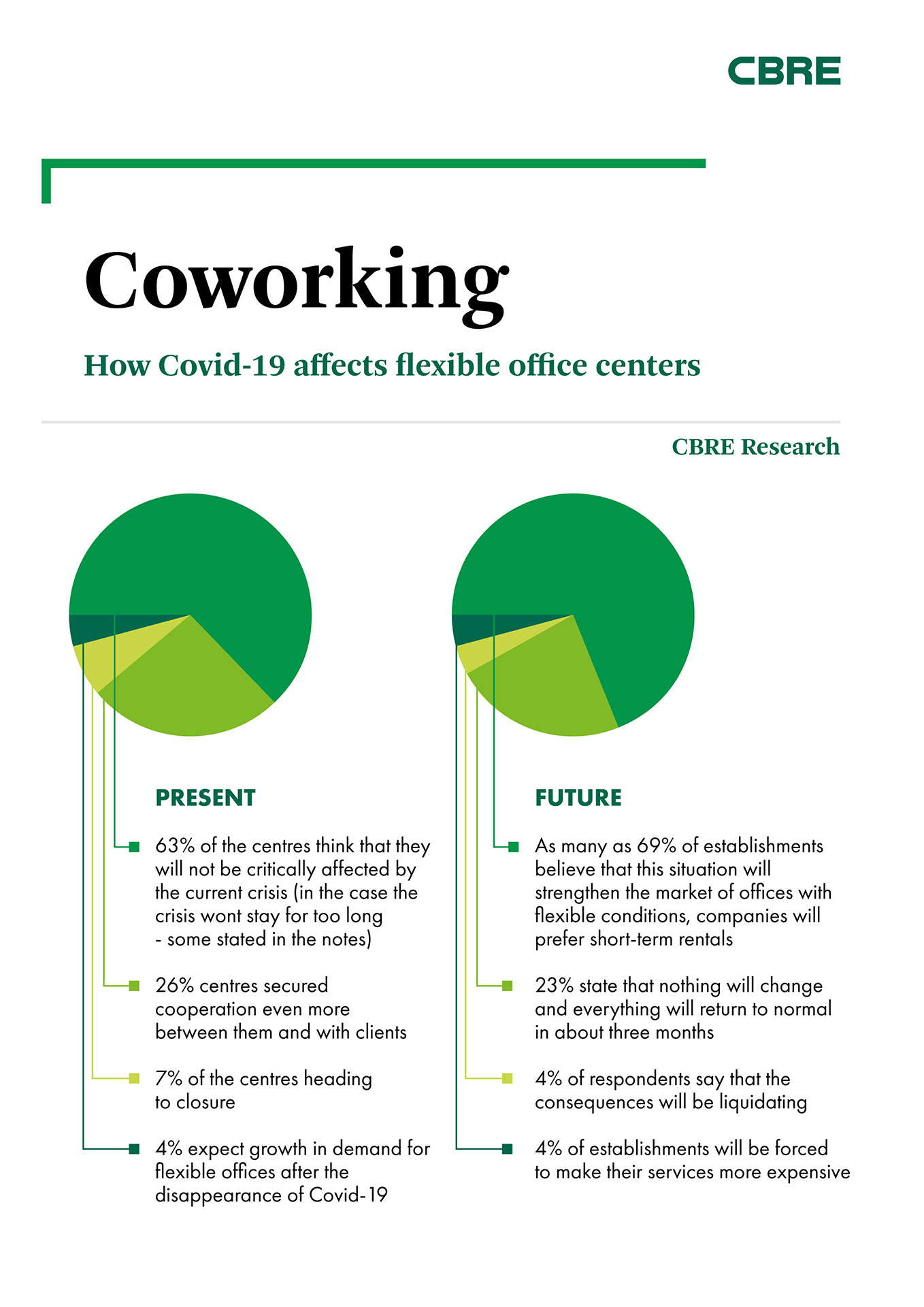CBRE Survey: Coworking and serviced offices can overcome the crises
Although it may seem at first glance that the current coronavirus crisis has put a stop to coworking centers and serviced offices, the reality is different. Their operators reacted very quickly to the onset of a pandemic and strengthened their hygiene precautions. Also they allowed clients to use secluded offices for free, even if they only have membership in shared spaces. It has become clear how flexible offices are important - not only in financial terms, but also as part of corporate policy or the possibility of spreading risks. A survey of real estate consulting company CBRE among 36 domestic operators of flexible office centers (from small operators to large coworking chains) showed that 63% of them believe that the current crisis will not critically affect them in any way, 26% have further strengthened cooperation with their clients and 4% even expect demand for flexible offices to grow. In the future, companies will require even more flexibility in the length of leases and the size of the offices used, in order to be able to adapt quickly to further uncertainties and potential crises.

Coworking centers apply strict hygiene measures
A total of 34 of the 36 operators surveyed currently have the centers open and intensify their hygiene precautions. Thorough disinfection of the premises takes place every day. The operator Regus for example performs deep disinfection at night in all of its facilities and continuously cleans exposed areas during the day. Clients who have membership in a coworking shared space have moved to smaller offices for free. The receptionists, like all members, are required to wear a mask. Although coworkings are located in buildings with good air conditioning, some operators have also provided special air purifiers that capture pathogens. Also other precautions have been introduced. For example, in Cowo Brno, only two people with a mask can sit together in one office. In Scott & Weber and Flexi Office centres, in addition to increased hygiene, care is taken to maintain a distance of two meters. The other two centers from our survey limited client visits. comments Lenka Hrudíková, Coworking and Flexible Office Specialist společnosti CBRE.
Most respondents agreed that the majority of clients of serviced offices and coworking currently work from home and go to work only for few hours or on certain days. For this reason, there are often requests to postpone or suspend membership payments. There are also calls for a discount or waiver of the membership fee for the period when the client does not use the office. In addition, 25 centers reported that 10% of its clients had terminated their membership. Four centers recorded a decrease of more than 20% of their clientele. However, six centers did not lose a single client and others record growing demand from new members from other business segments. "Almost half of the respondents said that despite the current crisis, they are receiving new demands from potential clients, especially from companies from prosperous fields such as IT. In addition, some companies have started to use serviced offices as their second workspace to spread the risks of infection or as a space for employees who do not have ideal working conditions at home for their work, "says Lenka Hrudíková.
The reasons are obvious: too small apartments, a slow internet connection, the absence of atmosphere for creative work, a lack of social interaction or the constant interest of children seeking attention. On the contrary, the serviced offices are quiet, there is high-speed Wi-Fi, a copy center and meeting rooms. The reception is open 24 hours a day, and operators provide lunch and snacks directly to the building. In addition, clients have flexible rental terms: contracts on a monthly basis that they can extend in the long run. At the same time, office viewings are still ongoing: most often live, but also online via a webcam.